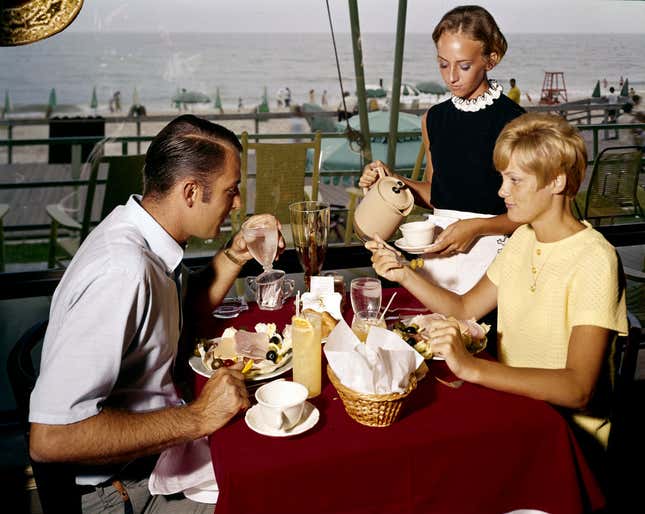
Freakonomics hosted a podcast this week where authors Stephen J. Dubner and Steven Levitt explore whether tipping should be banned. Dubner says:
Tipping is an idea that economists, traditionally, have a hard time with. Why should I give more of my money to someone else on top of what I’ve already paid for a meal or a ride to the airport? And what is a tip exactly, a fee? A tax? Is it altruism?
But there’s another (fundamentally economic) reason the podcast failed to touch upon: It’s built into the pay of certain professions. So a tip credit for restaurant workers, for example, factors into the way their wage is calculated. Instead of paying the current federal minimum wage, which is $7.25, restaurants can pay a minimum of $2.13 as long as tips make up the difference.
And it’s becoming a more entrenched part of the US economy. In the US, tipping is most prevalent in 31 professions, compared to 15 in the Netherlands, four in Japan and none in Iceland. A study from PayScale finds that tipping rose 2% in 2012 over the previous year. Gaming dealers, waiters, and bartenders rely on tips for more than 50% of their salaries. In a slow economy, these workers suffer when, say, cuts in hotel rates bring in a clientele who tip less. Or when airlines’ bag fees prompt travelers to pack less and forgo the skycap or bellhop. The move away from cash and toward electronic payment options is also cutting into tips. The tipping system means that a whole cohort of worker’s wages are directly dependent on a consumer who’s only guided by his ethical code and his wallet. Many states have raised their minimum wage above the federal limit to make up for this shortfall.
In fact, tipping originated as a form of trickle-down economics in the 1600s, where wealthy classes could pass on their wealth, according to an excerpt from Keep the Change, a 2010 book by waiter and blogger Steve Dublanica. What began as a reward for exceptional service became expected by servants in a system of “vails,” which morphed into tips when industrialization brought lower-class workers to jobs in hospitality and transportation. Dublanica writes:
But we also have to remember that post–Civil War America rapidly became a major industrial and economic world power. And as its citizens began earning higher wages, just like their European counterparts, they suddenly had more discretionary income to spend at hotels, in restaurants, and in the new railroad system crisscrossing the United States. But it was when employers discovered that they could use gratuities to pay their workers lower or even no wages at all that tipping really took off.
According to 2010 data from the Bureau of Labor Statistics, restaurant workers, cab drivers, casino game dealers, bartenders and maids account for more than 6 million workers, representing a fraction of the countless laborers who rely on tips. Meanwhile, food services and hospitality are industries that continue to add jobs.
While raising the minimum wage might not be the answer, perhaps it’s time to rethink this feudal holdover in our labor market.